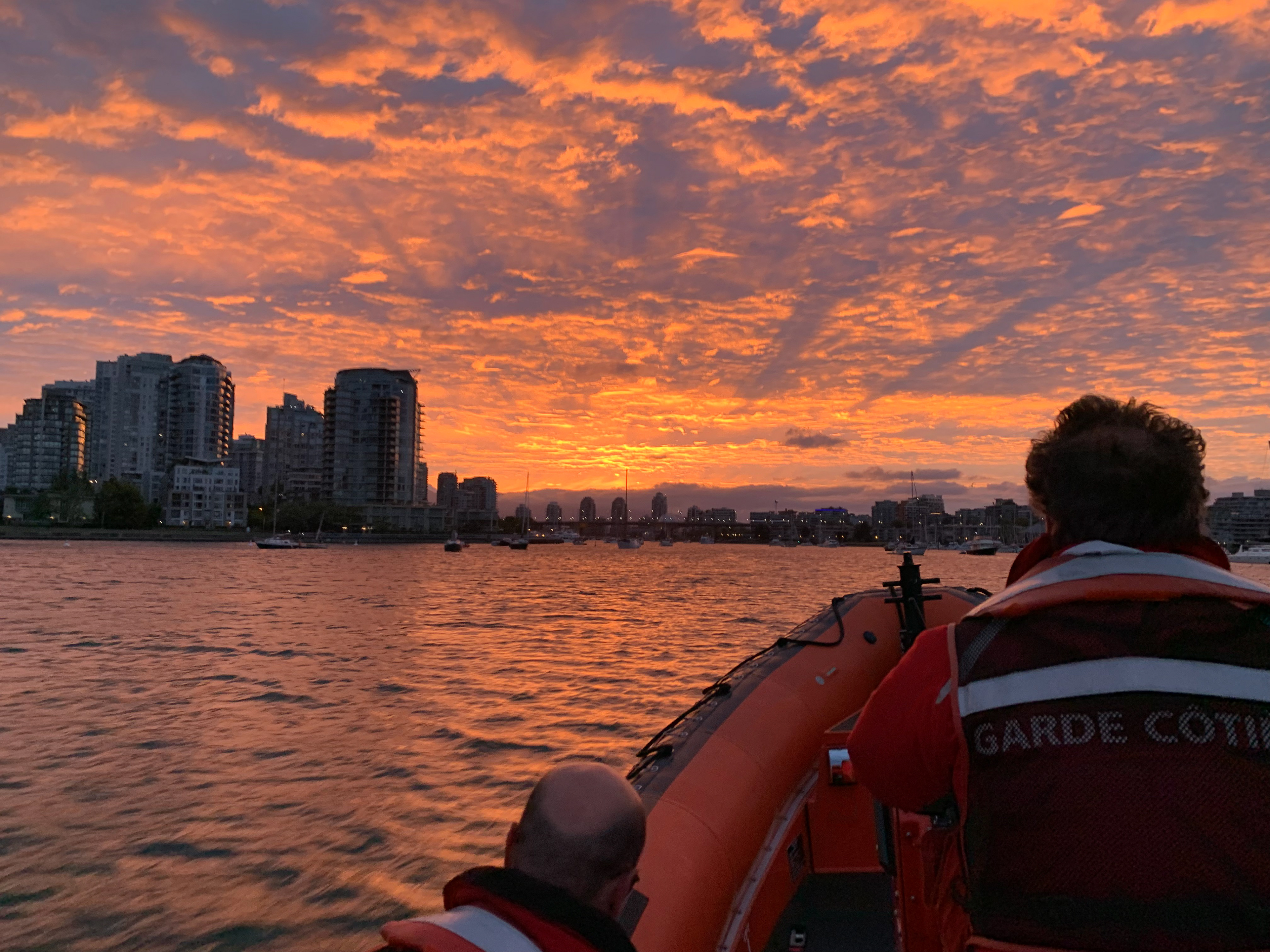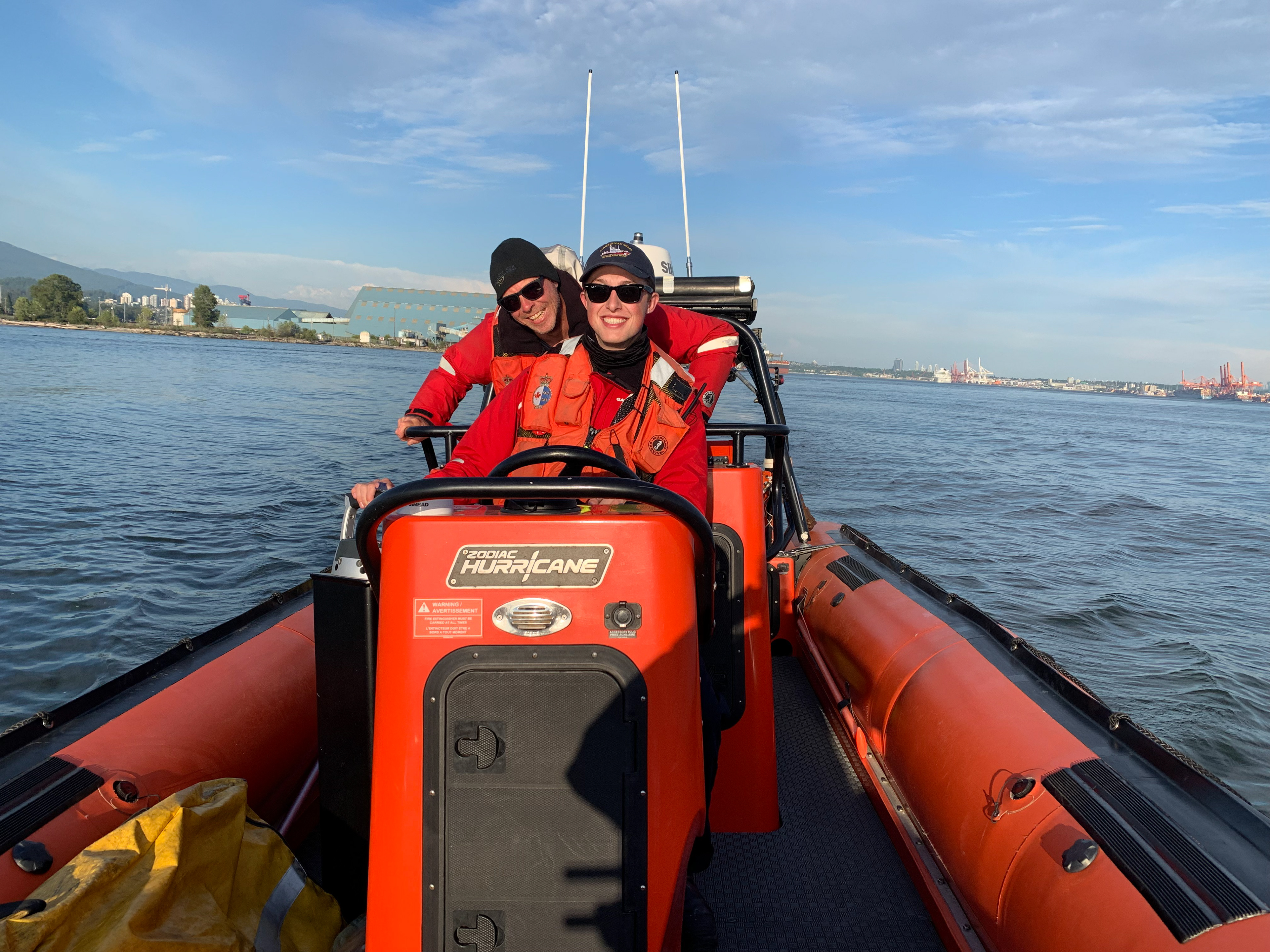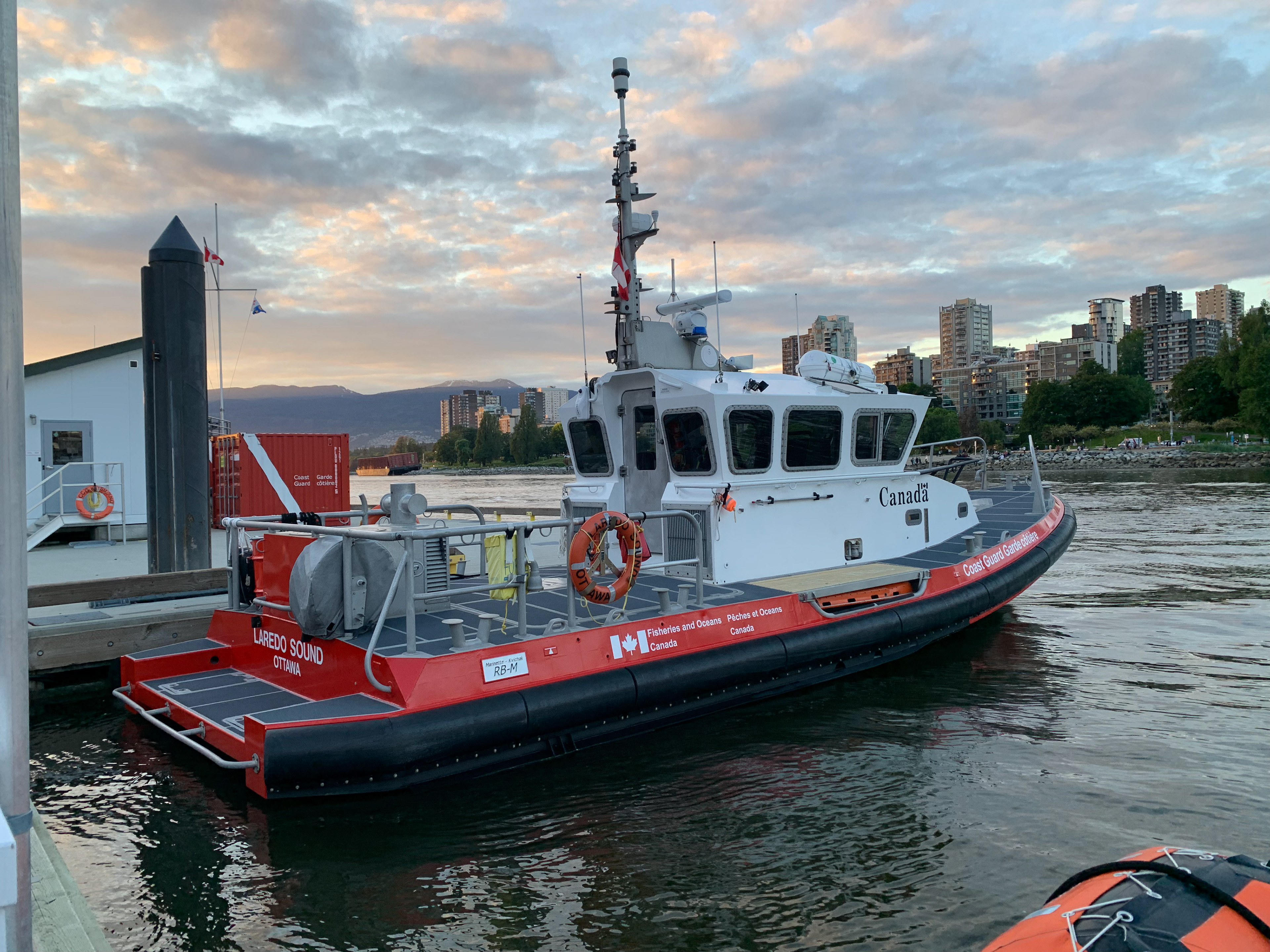Key Takeaways:
- Four summers of SAR experience on Zodiac FRCs, responding to medical, mechanical, and missing person incidents along the BC coast
- Developed strong understanding of critical equipment performance, failure modes, and user needs in high-stress environments
- Strengthened leadership, team communication, and rapid decision-making through 24/7 on-call operations and multi-agency coordination










[Note: All images are of training scenarios only]
I joined the Canadian Coast Guard’s Inshore Rescue Boat (IRB) program after my first year of university having never been on anything bigger than a canoe. While the learning curve was steep and the expectations were high, I fell in love with the work. Over four summers, I served on three- to six-person crews along the BC coast, from the busy Vancouver Harbour to the remote passages of Johnstone Strait, on-call 24/7 for 14-day rotations.
Our calls ranged from medical evacuations and capsized vessels to mechanical failures and overdue or missing persons, often at night, in low visibility, or in rough water. My responsibilities spanned navigation, marine radio communications, vessel handling, inter-agency coordination, and patient care. I especially valued the moments of delivering care in high-stakes situations, stabilizing injured mariners and ensuring safe transport in complex conditions.
Day to day, I operated Zodiac Hurricane Fast Rescue Craft and became deeply familiar with the systems that keep missions moving. These systems included everything from the vessels’ mechanical and electronic components to critical gear like drysuits, thermal layers, first aid kits, stretchers, radios, and tow equipment. Training and real-world missions taught me how equipment must function when lives are on the line, what works, what fails, and how to make sound decisions under pressure. Those lessons strongly shape how I think about engineering today, especially around user interface, durability, and field reliability.
Equally important was the crew dynamic. Two weeks on call with the same team forged trust, clear communication, and shared responsibility, skills that matter as much in high stakes rescues as they do when deciding what’s for dinner after a long shift. Working alongside agencies like the RCMP, BC Ambulance, and RCMSAR reinforced how to lead and follow effectively and to balance precision with efficiency.
This role was truly formative. It honed my ability to stay calm under pressure, think clearly in unstable environments, and operate as part of a well-oiled team. It continues to inform how I approach work in any project I take on.
